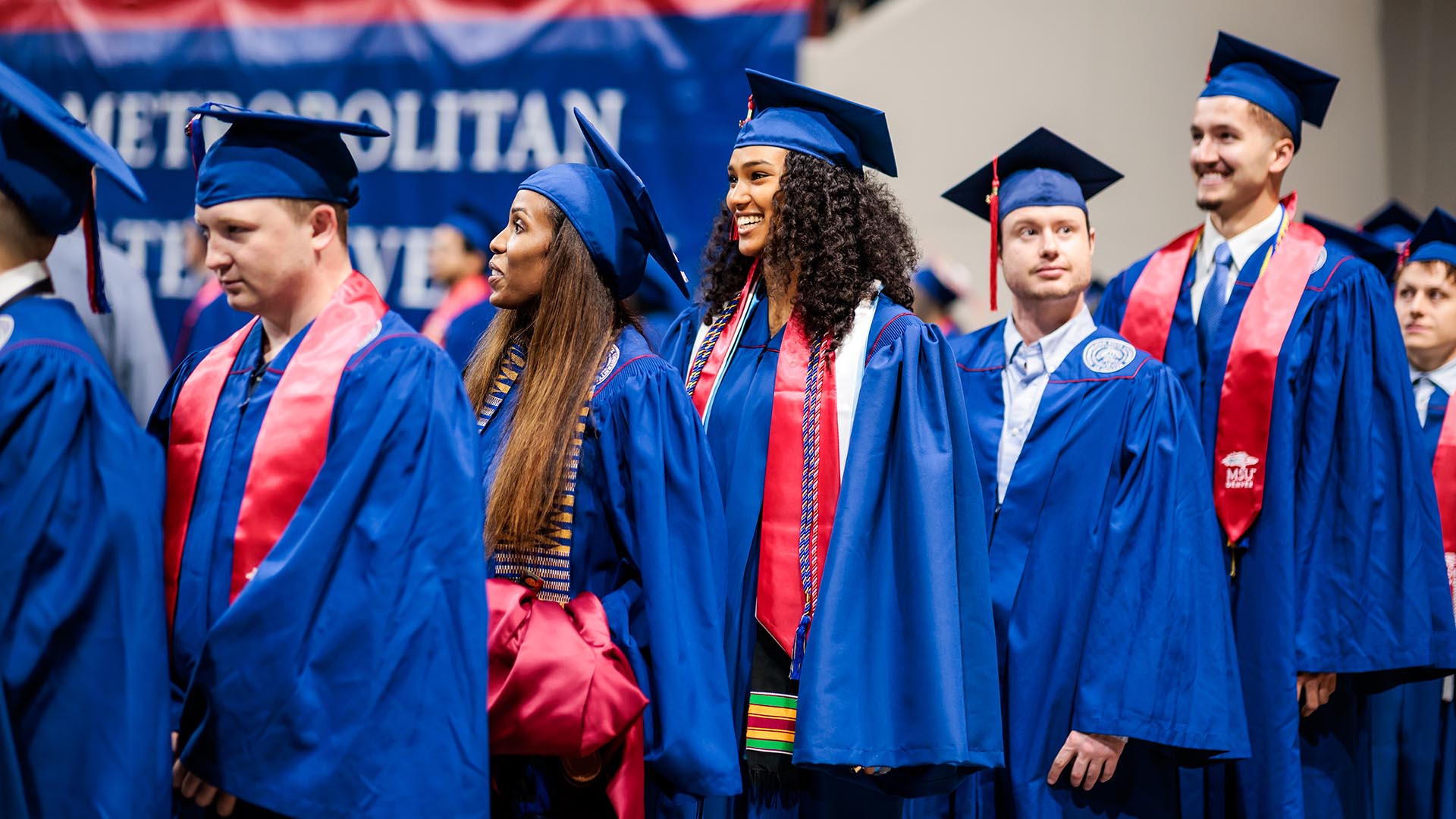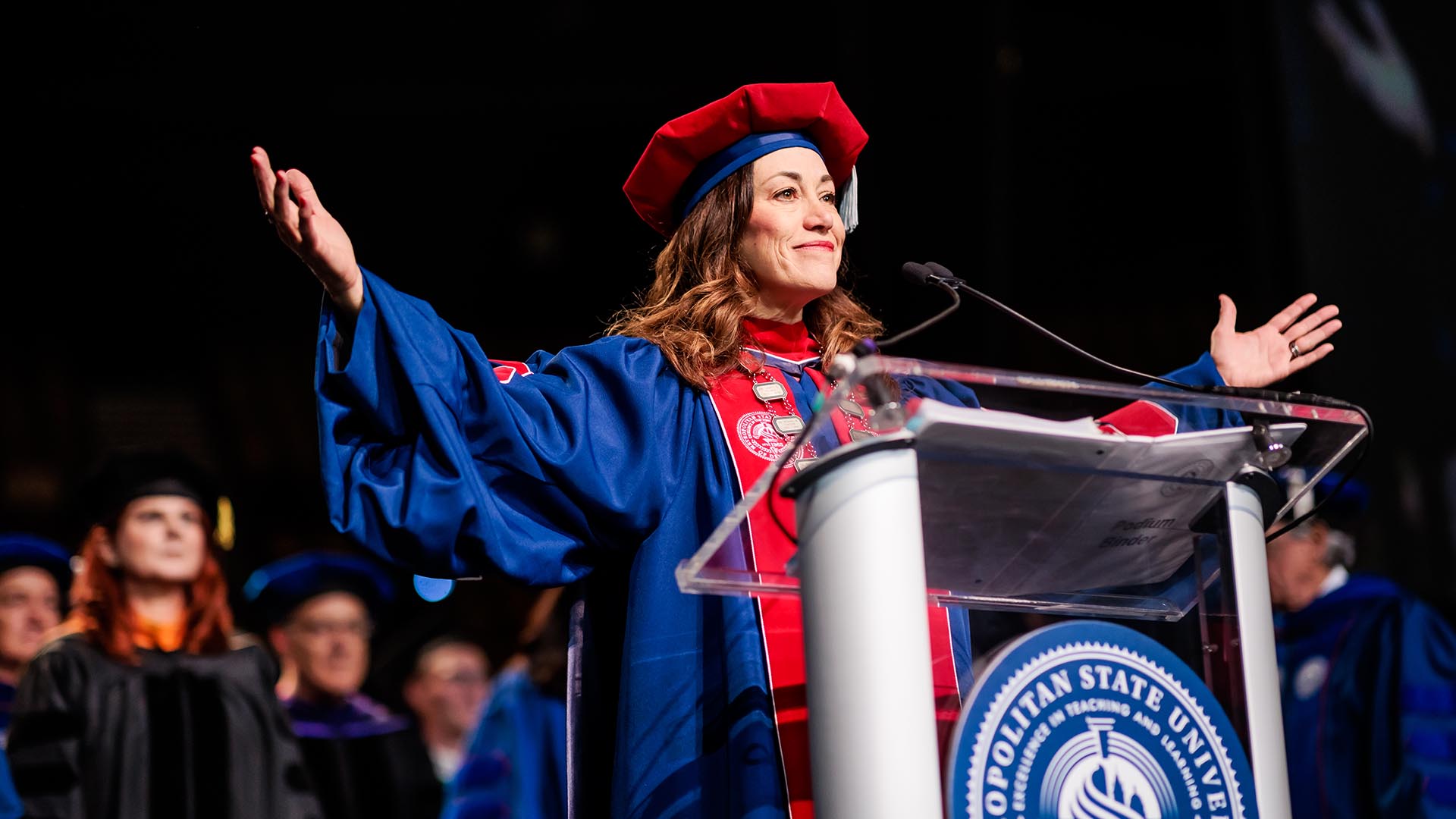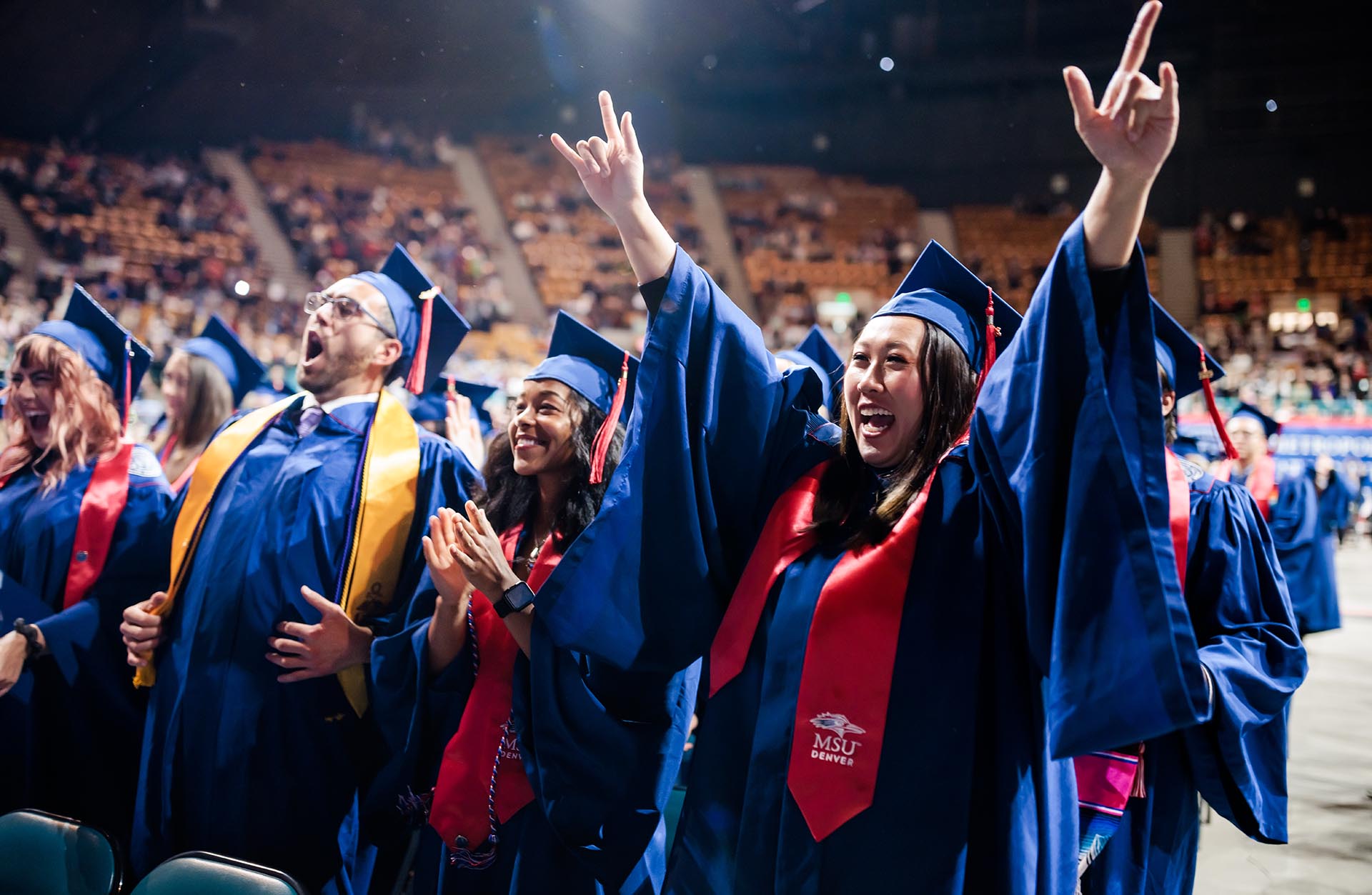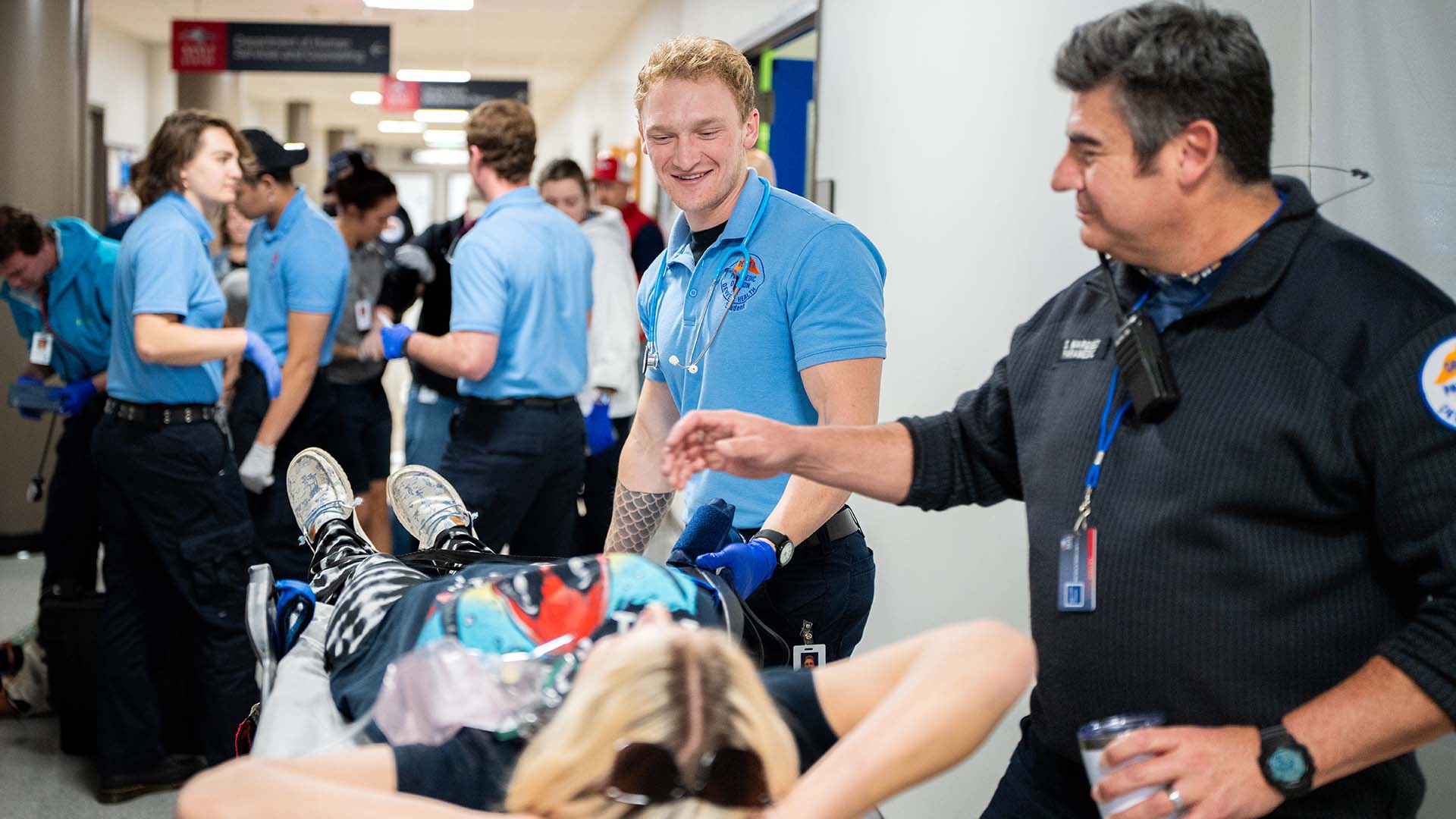Public higher education in Colorado remains a worthwhile investment
New state report underscores the value of a college degree and debunks a prevalent misconception about student debt.

Publicly funded higher education continues to be a pathway to a better life for Coloradans, paving the way for higher wages and greater opportunities to pursue fulfilling careers, a new study has found.
In addition, as student debt burden has declined, postsecondary education — including short-term credentials, associate degrees, bachelor’s degrees and beyond — is paying major dividends for the community as a whole, according to the 2023 Higher Education Return on Investment Report, published by the Colorado Department of Higher Education.
“We find evidence that as education increases for Coloradans, annual wages also increase across all industry sectors in the state, regardless of the type of credential one completes,” the report’s authors wrote. “This positive return on investment in the workforce leads to a stronger labor market, a vigorous economy, vibrant communities, and ultimately, stronger Colorado families.”
Janine Davidson, Ph.D., president of Metropolitan State University of Denver, said the findings of the report, which is published annually under a 2018 mandate from the Colorado General Assembly, reinforce MSU Denver’s longstanding commitment to advancing the lives of its students, more than half of whom are among the first generation in their family to attend college.

According to the U.S. Bureau of Labor Statistics, earnings for workers ages 25 and over continue to increase as educational attainment rises. Last year, those in the labor force without a high school diploma earned 25% less than those who completed college degrees, and outcomes continue to improve with every level of education completed, the report states.
“Higher education continues to be a ticket to success and social mobility for millions of Americans,” Davidson said. “College graduates earn considerably more than those who lack bachelor’s degrees, and they are also healthier and happier, on average.”
RELATED: Colorado has an overflow of job openings — and nobody to fill them
The study found that the demand for skilled workers in Colorado remains robust, with 47% of employers reporting they have job openings they can’t fill. Meanwhile, the dynamic nature of the job market means credential completion and advancement are more important than ever. Eighty-five percent of jobs that will be available to the 2035 graduating class don’t yet exist, the report said.
“Colorado graduates benefit not only through completion and advancement but also from readiness to join the labor market equipped with the high-demand, highly competitive skills required for them to thrive in their unique career pathways,” Gov. Jared Polis and Angie Paccione, Ph.D., executive director of the state Department of Higher Education, wrote in a letter accompanying the report.
“This is how Colorado can assure learners they have the training they need to reach their dreams and continue to optimize their quality of life,” they said.

Student debt declines
The report, which draws on multiple data sources, examines four primary categories: price, debt, choice and value. Each of those categories has a bearing on whether the time and money spent on higher education is a worthwhile investment.
In 2021-22, published in-state tuition and fees at Colorado’s four-year institutions averaged about $10,900 per year. In-state tuition and fees at MSU Denver, among the most affordable four-year institutions in the state, cost about $8,800 per year.
But as the report notes, few students pay that full cost. Nearly all receive financial aid as a mix of federal, state and college-funded grants and scholarships. At MSU Denver, for example, students this fall paid an average out-of-pocket cost of just $1,112 for tuition and fees. And nearly 25% paid nothing at all, thanks to programs such as the Roadrunner Promise, which covers tuition and mandatory fees for eligible students whose costs aren’t covered by other federal, state and institutional aid and scholarship programs.
RELATED: In wake of SCOTUS student-debt ruling, MSU Denver doubles down on affordability
And while college costs statewide have increased modestly year-over-year, the good news is that since 2014, debt among graduates of Colorado’s public institutions has declined by approximately 5% for those who attended four-year schools and 10% for those attending two-year schools. The percentage of graduates with debt has also decreased in recent years, the report states, debunking a prevalent misconception that college debt is on an upward trajectory.
Last year, about half of bachelor’s-degree graduates and 34% of two-year-college graduates accrued student-loan debt, with the average associated student-loan debts in the state amounting to $25,200 and $12,900, respectively.
The report also finds room for improvement, highlighting the fact that many students do not complete their coursework in two or four years, leading to added expense and lost earnings opportunities. The average time to graduate for those seeking bachelor’s degrees is 4.53 years; it stands at 4.13 years for those seeking an associate degree.
RELATED: How ‘stackable credentials’ can help shore up Colorado’s workforce
The report calls for “an intentional focus on expanding opportunities that reduce the time needed to learn in-demand career skills and thereby reduce the opportunity cost of (forgone) wages.” It also expressed concern that certain racial and ethnic groups and women continue to earn lower median wages.
Davidson said supporting a more diverse workforce is a top priority at MSU Denver, where more than half of undergrads are students of color.
|
MSU Denver Tuition Lock Guarantee To provide more certainty around college costs and to help hold student debt down, MSU Denver locks tuition rates for four years for new undergraduate freshmen. For new students who transfer to MSU Denver from other institutions tuition will be locked for two years.
|
|
“Through proven peer-mentorship programs and other robust student-support services, we’re committed to propelling students from diverse backgrounds through graduation and into successful careers,” Davidson said.
Finally, the report finds that the return on investment from higher education can’t entirely be quantified. The college experience also confers intangible but meaningful benefits to graduates in the form of enhanced cognitive and life skills.
College degrees and nondegree credentials offer life experiences that arguably can’t be taught anywhere else.
“Colorado’s higher education ecosystem is student-focused and encourages students to think critically, build problem-solving skills, and ultimately, become champions of their best selves,” the report said.







